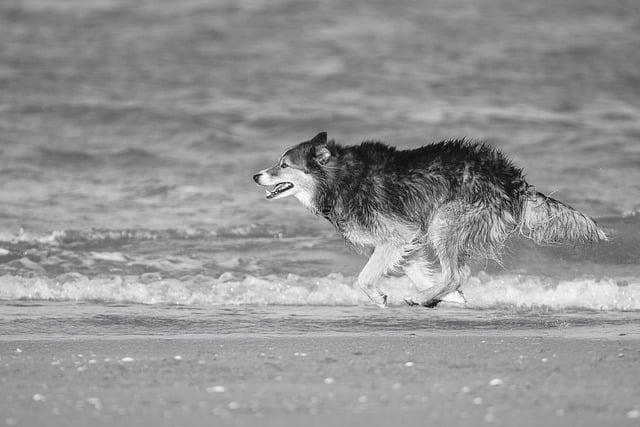In a quiet neighborhood, a family faced an unsettling rise in local crime. Concerned for their safety, they sought the perfect canine protector. After researching various breeds, they discovered the German Shepherd—a loyal guardian known for its intelligence and courage. With proper training, their new companion not only deterred intruders but also became a beloved family member. This story illustrates that the right dog, like the German Shepherd, can provide unmatched defense while fostering a deep bond, making it the best choice for protection.
Contents
- Understanding the Key Traits of Effective Guard Dogs
- Top Breeds for Home Protection and Their Unique Strengths
- Training Techniques to Enhance Your Dogs Defensive Abilities
- Evaluating Your Lifestyle to Choose the Ideal Protective Companion
- Q&A
Understanding the Key Traits of Effective Guard Dogs
When selecting a dog for defense purposes, it’s essential to recognize the characteristics that contribute to a dog’s effectiveness as a guardian. **Temperament** plays a crucial role; a dog must exhibit confidence and assertiveness without being overly aggressive. This balance ensures that the dog can assess situations calmly and respond appropriately, making it a reliable protector in various scenarios.
Another vital trait is **intelligence**. A dog that can quickly learn commands and adapt to new situations is invaluable in a defense role. Intelligent breeds can be trained to recognize threats and respond accordingly, whether through barking to alert their owners or taking action to deter an intruder. This adaptability not only enhances their protective capabilities but also strengthens the bond between the dog and its handler.
Physical attributes should not be overlooked either. A strong, **athletic build** allows a dog to engage effectively in defense situations. Breeds that possess agility and endurance can pursue intruders or navigate obstacles with ease. Additionally, a dog’s size can be a deterrent in itself; larger breeds often intimidate potential threats simply by their presence, adding an extra layer of security.
**loyalty** is a defining characteristic of an effective guard dog. A loyal dog will instinctively protect its family and territory, often forming a deep bond with its owners. This loyalty not only enhances the dog’s protective instincts but also fosters a sense of trust and companionship, making the dog not just a guardian but a valued member of the household. Choosing a breed that embodies these traits will ensure a reliable and effective defense companion.
Top Breeds for Home Protection and Their Unique Strengths
When it comes to safeguarding your home, certain dog breeds stand out for their protective instincts and loyalty. These breeds not only serve as companions but also as vigilant guardians, ready to defend their families at a moment’s notice. Their unique strengths make them ideal candidates for home protection, ensuring peace of mind for homeowners.
**German Shepherds** are renowned for their intelligence and versatility. Often employed in police and military roles, these dogs possess a natural protective instinct. Their strong physique and keen sense of smell allow them to detect intruders effectively. Moreover, their loyalty to their families makes them both a loving pet and a formidable protector. Training a German Shepherd can enhance their protective abilities, making them an invaluable asset for home security.
**Rottweilers** are another breed that excels in home defense. Known for their strength and confidence, Rottweilers are naturally protective of their territory and loved ones. Their imposing stature can deter potential threats, while their loyalty ensures they will stand by their family in times of danger. With proper training and socialization, Rottweilers can be both gentle companions and fierce protectors, striking the perfect balance between affection and vigilance.
**Doberman Pinschers** are often recognized for their sleek appearance and high energy levels. These dogs are not only intelligent but also highly trainable, making them excellent candidates for protection work. Their alertness and speed enable them to respond quickly to any perceived threat. Dobermans are known for their loyalty and bond with their families, which drives their protective instincts. With the right training, they can become an effective deterrent against intruders while remaining loving family pets.
Training Techniques to Enhance Your Dogs Defensive Abilities
When it comes to enhancing your dog’s defensive abilities, the right training techniques can make all the difference. **Positive reinforcement** is a cornerstone of effective training, encouraging your dog to associate defensive behaviors with rewards. This method not only builds confidence but also strengthens the bond between you and your dog. Use treats, praise, or playtime as incentives when your dog successfully responds to commands or displays protective instincts.
Incorporating **obedience training** is essential for any dog intended for defense. A well-trained dog should respond promptly to basic commands such as sit, stay, and come. This foundation allows for more advanced training techniques to be introduced later. Consistency is key; practice these commands in various environments to ensure your dog remains focused and responsive, regardless of distractions.
Another effective technique is **socialization**, which helps your dog distinguish between normal situations and potential threats. Expose your dog to a variety of people, animals, and environments from a young age. This exposure will help your dog develop a balanced temperament, making them more adept at assessing situations. A well-socialized dog is less likely to react aggressively out of fear, allowing them to serve as a reliable protector.
consider incorporating **bite work** into your training regimen. This specialized training teaches your dog to engage in controlled biting scenarios, simulating real-life defense situations. It’s crucial to work with a professional trainer who specializes in bite work to ensure safety and effectiveness. This technique not only enhances your dog’s defensive capabilities but also channels their natural instincts in a constructive manner, ensuring they are both protective and well-behaved.
Evaluating Your Lifestyle to Choose the Ideal Protective Companion
Choosing the right dog for defense requires a thorough assessment of your lifestyle and living environment. Consider your daily routine, the amount of time you can dedicate to training, and the space available for your new companion. A dog that thrives in an active household may not be suitable for a quieter, more sedentary lifestyle. Understanding your own habits will help you identify a breed that aligns with your needs and expectations.
Another crucial factor is the presence of children or other pets in your home. Some breeds are naturally more protective and may exhibit aggressive tendencies if not properly socialized. It’s essential to select a dog that can coexist peacefully with your family dynamics while still providing the protective instincts you desire. Look for breeds known for their balanced temperament and adaptability to various social situations.
Training and socialization are vital components in developing a dog’s protective abilities. Evaluate how much time you can commit to training sessions and whether you prefer to engage a professional trainer. Certain breeds require more intensive training to harness their protective instincts effectively. A well-trained dog not only becomes a reliable guardian but also a loyal companion that integrates seamlessly into your lifestyle.
Lastly, consider your living environment. If you reside in an apartment, a smaller breed with a calm demeanor may be more appropriate, while those with larger homes and yards might benefit from a more active and robust breed. Assess your neighborhood’s safety and the potential threats you may face. This understanding will guide you in selecting a breed that not only fits your lifestyle but also offers the level of protection you seek.
Q&A
-
What qualities should I look for in a defense dog?
When selecting a dog for defense, consider the following qualities:
- Temperament: Look for a dog that is confident, alert, and protective.
- Trainability: A dog that is eager to learn and responds well to commands is essential.
- Size and Strength: Larger breeds often have a physical advantage in protection scenarios.
- Socialization: A well-socialized dog can distinguish between threats and non-threats effectively.
-
Which breeds are considered the best for defense?
Some of the top breeds known for their protective instincts include:
- German Shepherd: Renowned for their intelligence and loyalty.
- Rottweiler: Strong and fearless, making them excellent protectors.
- Doberman Pinscher: Agile and alert, they are natural guardians.
- Belgian Malinois: Highly trainable and energetic, ideal for defense work.
-
How important is training for a defense dog?
Training is crucial for a defense dog. Proper training ensures that the dog can:
- Understand commands and respond appropriately.
- Distinguish between normal situations and potential threats.
- Act confidently and protectively without being overly aggressive.
- Socialize well with family members and guests.
-
Can any dog be trained for defense?
While many dogs can learn basic protection skills, not all dogs are suited for defense work. Factors such as:
- Natural instincts and temperament.
- Physical capabilities.
- Willingness to engage in training.
should be considered. Breeds with a strong protective instinct are generally more successful in defense roles.
choosing the right dog for defense is crucial for your safety and peace of mind. With the right breed, training, and commitment, you can ensure a loyal protector by your side. Invest wisely in your canine companion for a secure future.

大家好,我是彼得潘,專業的手法身體治療師。我喜歡探索和研究各種主題,並透過與人工智慧的合作分享專業、實用、有趣的文章。我們定期進行人工審核,以確保內容的準確性。如果您發現文章中有任何不準確的地方,請隨時與我們聯繫,我們會及時糾正。您可以透過 [email protected] 與我們聯繫。



